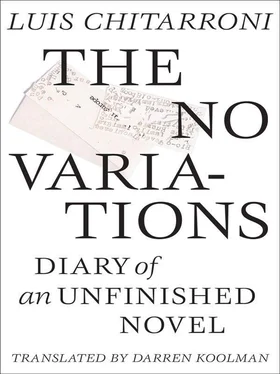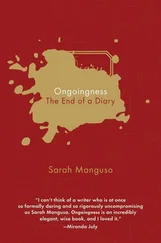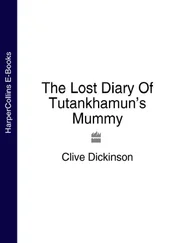I commend Hernán’s essay on Henry Green (we assumed it was the first authoritative one in Spanish). Of course, Luini confused Henry Green for Hugh Greene, so he spent quite a while blabbering on about The Spy’s Bedside Book .
14.12. Aída said she thought the second coming of the Great Dog of Xochimilco was truly extraordinary. “Fairly extraordinary,” said Zi, “taking into account …” “Fairly extraordinary”: a form of meiosis intended to suggest the dullness of the thesis and make nonsense of its hierophanies. “And that’s exactly what I was trying to explain,” explained Aída. “What, a thesis or hierophany?” asked Luini. In reality, the great jackal of Xochimilco had only once pronounced against any kind of prophecy, she said. It was: February 31, 1965, the occasion of Mircea Eliade’s visit. Yes, in the presence of the great Romanian interpreter of religious experience, the accursed fucking dog came out of his dwelling with a voracity that was memorable, romantic. Witnesses said they’d never seen anything like it. The impeccable bareness of its glabrous skin resolved in a mound of astrakhan on its head, like a bridal bun. The cynical dog stood on its hind legs, like one of those therapods children admire and know much more about than us. He peered towards the shoreline, towards the tufted jungle canopies, and beyond them, to the foothills on the horizon, and produced a howl or a roar so loud, it could be heard in Mixcoac and Sonora, Aída recounted. Now, at the feet of the great religious scholar — and pessimistic novelist — lay the hot-blooded jaguar. With rhythmic cuts, he removed the yellow ocellated skin from the elemental skull, carving a trophy made of bone as a tribute to the Great Dog of Xochimilco, who approached Mircea as if summoned by a familiar voice. He sniffed at it. Mircea offered it up. He opened wide its monstrous jaws and gave Mircea his olfactory reward (the smell of shit was reserved as a consolation prize). “Why didn’t he record any of this in his diary?” cried the skeptical Luini …
14.12. Luini wouldn’t shut up. He was trying to argue that all of the above was complete bullshit. He began listing his arguments one by one, almost shouting himself hoarse, and we were all ashamed, embarrassed by his toe-curling effusion. Luini, with his sympathy for all things abstruse, and his kind of erudition — derived from his prolific readings of blurbs and the inside flaps of books — was one of those literary aberrations the ministerial mother country sought to include at every convention: another Waldo Frank (Scott Fitzgerald believed WF was some homonymous agency determined to appear at every literary congress in the world), a diplomat, a municipal poet whose name …
[Almost] surreptitiously, Hernán tried to fix a drink with the last drop from the last bottle (of vodka?) to shut him up.
14.18. Then a few vagrants in a type of canoe or pirogue appeared. They offered us heroin (and trepidation — another sac of powder [kettle of fish?]), pulverulent cure for melancholy, raw material for the immediate construction of Kublai Khan’s pleasure dome. From beneath the cloak of the Nahuatl tongue, microscopic daggers were flung at us. Silverfish, hagfish, mute wildlife, photophobic (no xylophagous insects, please ) Xanadu in Xochimilco! One hundred and seventy-four Scrabble points!
14.21. But then somebody arrived from Porlock.
So I told them, the pornographer.
14.23? Zi said, tongue-in-cheek, that: “We travelled on an Argentinian airline surrounded by a troupe of robust Chilean virgins who were members of The Eucharistic Youth Movement. They made their graduate trip to Cancún singing hurrahs and vomiting at leisure … It’s not easy traveling such distances at cruising speed with the spiritual and physical weight of virginity weighing on the soul, or, moreover, with such a sensitive peritoneum. He, from the Yucatan, yucateco. She, from Guadalajara, tapatía.”
14.26. And when our shock and disbelief had already run its course, an obliging shadow, but not of a cloud, darkened the sky from north to south, while at the same time, a burgundy colored mist slowly extended from east to west. At their intersection was a yellow light, runny, like the yolk of uncooked egg, which then gradually appeared to solidify, the color changing to a [hard, boiled] strong, calcareous orange, as if the white and the yolk melted into one another, crackling, hissing. “I’d say we’re lucky to be inside,” said Aída. Hernán smiled and proposed another toast.
The great hummingbird of Xochimilco was, in reality, miniscule; the same size, in fact, as a hummingbird. (I imagined something as big as Coleridge’s albatross.)
We couldn’t see it from where we were, said Hernán. A tiny emerald amulet suspended in the air, the fluttering of whose wings would take us — Hernán moved Luini’s glass aside and did the calculation on the table — fifty-two years, seven months, three weeks, two days, fourteen hours, fifty-two minutes, and forty-nine seconds to register. We swore to be reunited on the boat the day of Xochimilco’s aurora borealis.
[But we also promised one another that, after receiving the Guggenheim Fellowship, we’d meet again on the boat, or if not, somewhere close by, to celebrate the foundation’s error and gross overestimation …]
14.32. When everything seemed to be wrapping up, I heard a voice with an Argentinian accent address me directly. It was a soft voice, muffled somewhat, and a little hesitant, like that of Amelia Mevedev, who spoke as if she was rationing her oxygen supply.
“What are you doing here?” it asked. And I answered, or started to answer, that I was using this picnic, this excursion, to gather notes in a notebook, a journal, which I showed it, was showing it, and that I intended, was intending to use them to write my very first travel book. Before it moved off, I realized it was indeed Amelia Mevedev who imparted to me this scanty, Eucharistic puff of breath … The winde bloweth where it listeth!
Suspense
14.37. Hernán asked Aída who it was I’d been speaking to. She saw me leaning on the gunnel, gesturing to an invisible presence. As I saw no reason to keep it a secret, I told Aída all about Amelia Mevedev. I told her about my reservations, my suspicions, adding: “Amelia Mevedev was one of the people we alluded to, probably without realizing, when we were discussing the literary supplements earlier. A renowned critic, who grows old alongside one of the giants of our literature, unless , that is, this giant of our lit …” And Aída, who was barely paying attention, whispered: “Then you know who the second one was?” But before I could respond to her question, which she asked in a tone that implied she knew the answer already, she said: “You know Doctor Lafora who treated Jorge Cuesta? His daughter.”
14.38. And Zi, overhearing our exchange, interrupted: “And what about the third?” At which point Aída responded defensively: “[Ah,] If you don’t know that then …”
14.39. For God’s sake!
14.41. After much badgering and pleading while blessing ourselves, some members of this self-styled navy crew finally acceded to grant our wish …
14.48. In a few instances, there were fits of hesitancy, distraction. Too much baggage, too much world. ( Cadaver full of the World , that was the name of the book Zi loaned me. It belonged to his friend … Aguilar Mora? And the title’s a quotation from … Vallejo? And If I die far from you ? What was the other book by Aguilar Mora or that other Vallejo quotation?) “The seventies,” Aída intoned, “how young I was!” She sounded as if she was delivering a quotation. “I’m younger than you are,” said Luini, “and I hated the seventies. I was forced to do military service. But nevertheless, after I was drafted, I joined a group of political leftists. That was 1977.” He didn’t sound very convincing, but we nodded credulously. “But it kept me alive, being wedged between the two — accommodated,” he stressed, as if to applaud his choice of phrasing. “But I spent the worst fourteen months of my life serving a sentence for a crime I hadn’t committed.”
Читать дальше












